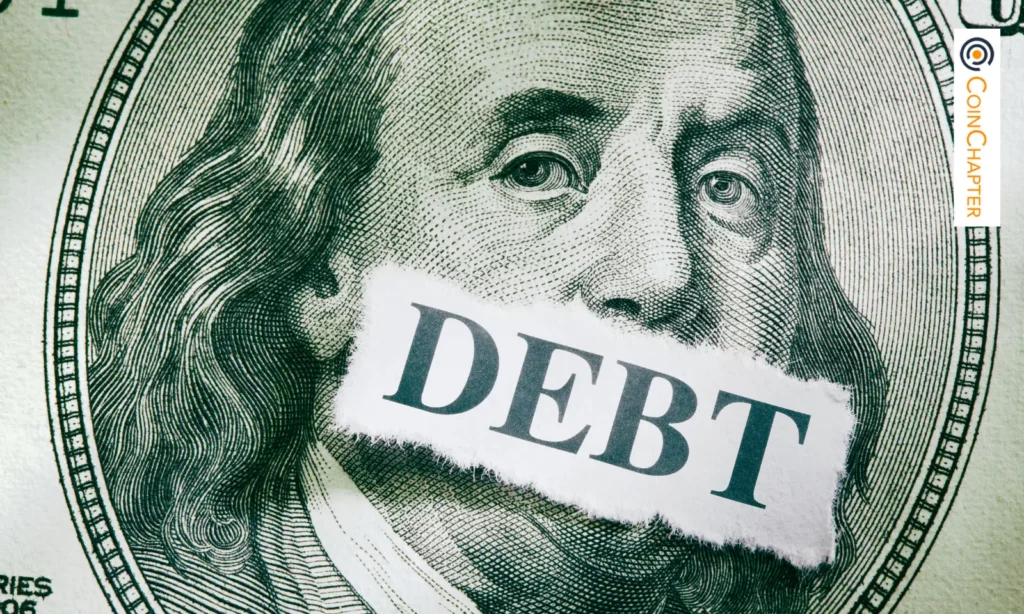NAIROBI (CoinChapter.com) — The U.S. national debt has breached the $35 trillion mark for the first time, signaling escalating fiscal concerns for the country. According to the Congressional Budget Office, it could rise to $56 trillion by 2024, with federal deficits possibly contributing an additional $22 trillion from 2025 to 2034.

A big part of this debt rise appeared during the COVID-19 crisis in 2020. Since then, it has risen $12 trillion, equating to approximately $105,000 in debt per person. This increase, driven by extensive federal spending and economic stimulus measures, has pushed deficit spending to levels not seen since World War II.
High Costs and Political Stalemate
Rising debt poses severe challenges, as high interest rates compound the difficulty of managing the financial burden. Projections indicate that by 2034, the United States will spend approximately $1.7 trillion annually on interest payments. This fiscal reality underscores the urgency of addressing the debt crisis.

Despite the pressing need, political leaders have offered limited solutions. Vice President Kamala Harris and former President Donald Trump have remained relatively silent on the issue. The Biden administration proposed a $3 trillion deficit reduction plan, primarily through increased taxes on high earners and corporations.
Republicans argue that Democratic policies worsen the debt, proposing spending cuts as a remedy.
Could Bitcoin Be America’s Financial Lifesaver?
At a recent Bitcoin conference in Nashville, former President Donald Trump promised to transfer the $15 billion worth of Bitcoin stash seized by the U.S. government to the Treasury Department. He advocated for Bitcoin mining in the U.S., noting that if they don’tdo it, China will.
Additionally, Senator Lummis proposed legislation to create a strategic Bitcoin reserve, aiming to reduce the national debt by buying 1 million BTC over a five-year plan.

She argued that adding Bitcoin to the reserve would strengthen the U.S. dollar and, thus, reduce inflation.
The U.S. currently maintains strategic reserves in assets like gold and petroleum. Adding Bitcoin would bolster the U.S. dollar with a digital asset, securing the nation’s financial leadership for decades. The proposed Bitcoin reserve would hold the cryptocurrency for 20 years, using it only to pay down national debt.

Presidential candidate RFK Jr. has also proposed a bold plan. He aims to sign an executive order directing the U.S. Treasury to purchase 550 BTC daily until the reserve reaches four million Bitcoins. This plan seeks to position the U.S. in a dominant financial role.
The post U.S. National Debt Hits All-Time High of $35 Trillion — Can Bitcoin Save the Day? appeared first on CoinChapter.


